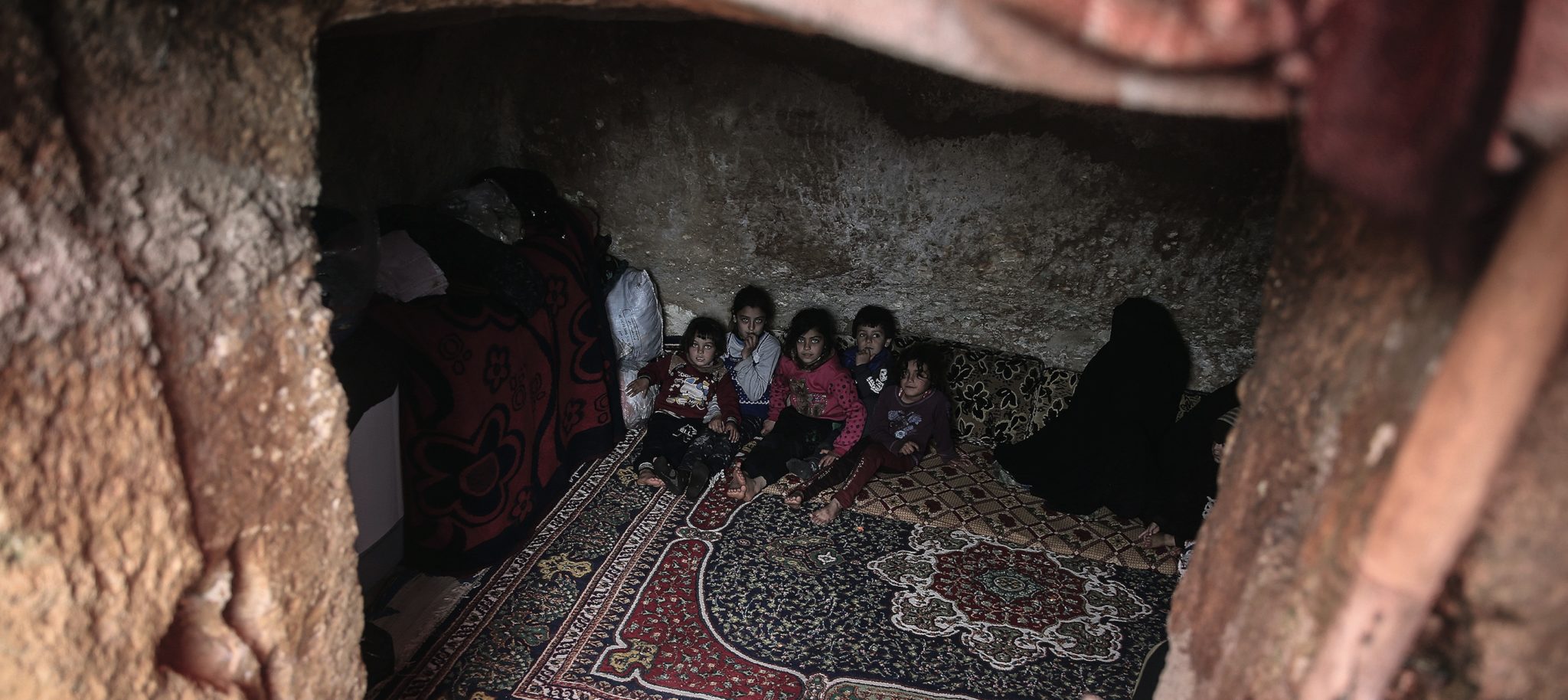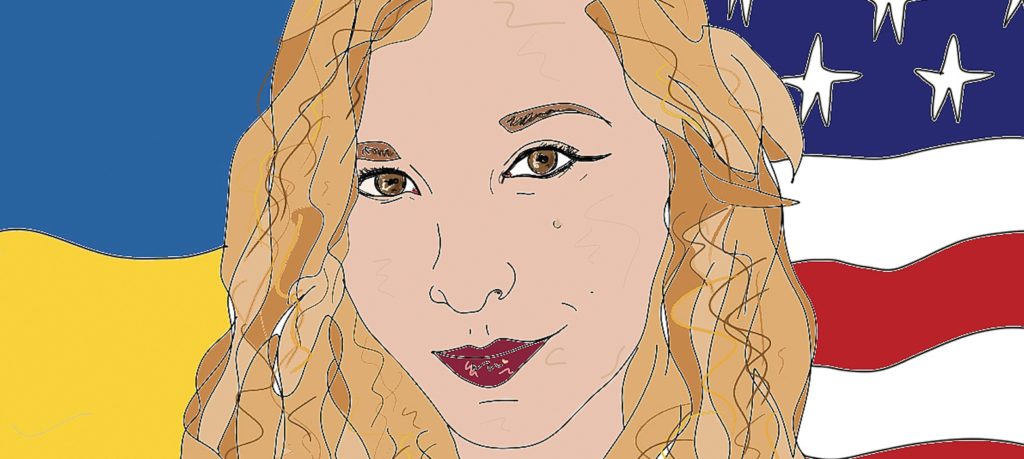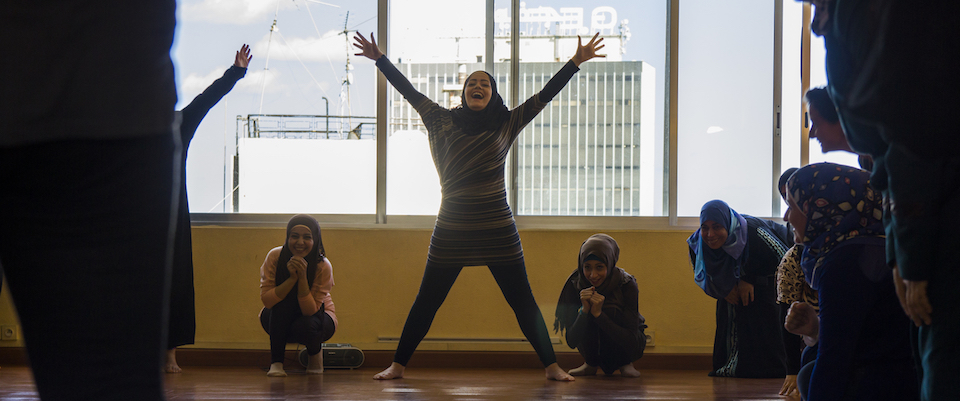Since the beginning of the Russian invasion of Ukraine in February, countries around the world have rallied their support for Ukrainians. NATO allies have united like never before, imposing severe economic sanctions on Russia and making Vladimir Putin an international pariah. At the same time, Ukrainian leader Volodymyr Zelenskyy has become a celebrity in the West.
What explains the outpouring of support? NBC News correspondent Kelly Cobiella, reporting from Poland, contrasted the country’s warm welcome of Ukrainians with Warsaw’s hostility toward Middle Eastern asylum-seekers. She attributed it to the fact that these were “ not refugees from Syria, these are refugees from neighboring Ukraine…. These are Christians, they’re white, they’re very similar to many people who live in Poland.” Reporting from Kyiv, CBS News foreign correspondent Charlie D’Agata said Ukraine “isn’t a place, with all due respect, like Iraq or Afghanistan that has seen conflict raging for decades … this is a relatively civilized, relatively European—I have to choose those words carefully, too—city where you wouldn’t expect that or hope that it’s going to happen.”
Comments like these beg the question: Are the casualties of war less tragic when its victims are not white and Christian? Has the world become desensitized to the pain of refugees from non-European countries?
For Cal students like me who are from North African and Middle Eastern backgrounds, all the news from Ukraine has heightened our awareness that race, religion, and political interests play a paramount role in which groups of people receive the most media attention and support.
Students like Mallak ’24 (who did not wish to have her last name published) are no strangers to war. While she believes the Russian invasion of Ukraine is cause for concern, especially considering the nuclear threat, she finds it hypocritical that the Palestinian fight for liberation does not receive the same coverage.
“I feel for the Ukrainians, and watching their country be demolished is heart-wrenching; although, it is equally painful to me to see these same media outlets avoid discussing the ongoing humanitarian crisis in Palestine,” Mallak said.
For Cal senior and president of the Yemeni Student Association, Aisha Homran ’22, seeing her professors give Ukrainian students exemptions from class assignments was also a reminder of a racial double standard.
“I have family in Yemen whose homes are being destroyed, and no one has tried to give me or any of my fellow Muslim brothers and sisters the same support,” Homran said.
Since 2015, Yemen has been the site of a war between Houthi forces and a U.S.-backed Saudi-led coalition, causing one of the worst humanitarian crises in the world. While the Biden administration has taken the lead in standing with Ukraine, it has failed to fulfill its promise to end the war in Yemen as it continues to approve weapon sales to the Saudi government.
Yasmine Ebrat ’22, president of the Afghan Student Association, expressed her disappointment at the lack of support from the university when Afghanistan fell under Taliban rule last summer.
“The university took two whole months to choose its words ‘carefully’ for what felt like a half-hearted ‘letter of solidarity’ with its Afghan students,” Ebrat said. “To receive this email provided really no comfort because we knew that the university had known about this crisis. I mean, the whole world knew and chose to stay silent until it really was too late.”
She thinks reporters may feel comfortable publicly voicing their outrage with the war in Ukraine precisely because war in places like Iraq and Afghanistan have become normalized.
Cal junior Chris Ying ’23 noted that the West’s solidarity with Ukraine is also rooted in its political and economic interests.
“[Putin’s] authoritarian regime commits human rights violations on a daily basis and in many ways serves as an ideological antithesis to the utopian vision crafted by Western liberal democracies,” Ying said.
True, but the war in Ukraine has also revealed a Western double standard toward refugees. In Germany, Afghan refugees are currently being forced to evacuate to make room for Ukrainians. Poland—which turned away Afghan asylees crossing from Belarus last year—is now welcoming Ukrainians with open arms. Meanwhile, African students in Ukraine have been left stranded and vulnerable.
I want to make it clear that I empathize with Ukrainians and condemn the violations being inflicted upon them by the Putin regime. The issue at hand is that the same support and media attention is not being extended to refugees from the Global South whose countries have been ravaged by war. While we grieve for the Ukrainians and support their struggle for autonomy, let us not forget those whose pain we have become desensitized to. Let us treat all refugees the way Ukrainians have been treated, as though they were human.
Dhoha Bareche is California’s new student columnist for 2022–23. She is majoring in political economy with a minor in journalism.





















